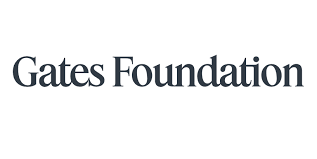The Gates Foundation has called on Nigerian leaders to accelerate gender equality efforts by moving from policy launches to tangible delivery for women and girls.
The Foundation stressed that Nigeria’s development success depends on translating policies into actions that directly benefit women, particularly in health and inclusive economic growth.
Ekenem Isichei, Deputy Director of Programme Advocacy and Communications (PAC) at the Gates Foundation, made the call in his keynote address at the 2025 Gender and Inclusion Summit organised by the Policy Innovation Centre (PIC) in Abuja.
The summit, with the theme “New Voices and New Approaches for Accelerating Inclusive Society,” brought together government, private sector, and civil society stakeholders to examine gender inclusion and its role in driving economic growth and development.
Isichei warned that inclusive growth would remain elusive unless women were intentionally prioritised in national and state policies, adding that gains in women’s health and empowerment could stall without stronger institutional delivery and budgetary commitment.
“Our goal is to leverage our knowledge and capital to enable government to serve its people, to execute budget commitments for key health innovations, to streamline donor delivery coordination mechanisms, and to operationalise development plans at state level,” he said.
He noted that the call came at a time when bilateral aid to Nigeria had dropped by 40 per cent, with programmes supporting women’s health and empowerment especially targeted. He added that funding for maternal and child health had fallen by 67 per cent.
“For every three women in your community, two will not have access to critical health commodities they had last year. When 70 per cent of Nigeria’s poorest are women, we cannot ignore their unique experiences in climbing out of poverty. At the Foundation, we have seen hard evidence that investing in women’s health and economic empowerment creates lasting impact across generations. It leads to healthier families, stronger economies, and a more just world,” Isichei said.
He called on national and subnational governments to strengthen planning and budget units, institutionalise gender desks, and equip local health managers and gender officers with the tools to deliver impact. He also emphasised the need for dedicated public resources for women, insisting gender-responsive budgeting must go beyond annual exercises.
Isichei urged governments to set clear expenditure targets for women-led MSMEs and ensure those funds are protected and properly disbursed. He recalled that the Gates Foundation had recently pledged $2.5 billion through 2030 for research and development in women’s health, and encouraged governments, the private sector, and civil society to co-invest.
Meanwhile, chairperson of Nigeria Governors’ Spouses’ Forum (NGSF), Prof. Olufolake Abdulrazaq, reaffirmed the Forum’s commitment to advancing gender equality, noting that Kwara State had passed a 35 per cent gender inclusion law. She added that 10 states now grant six months’ maternity leave, while Imo, Ogun, and Ekiti have female deputy governors, with Kwara recording 50 per cent female representation in its cabinet.
She described these measures as steps toward reshaping governance and leadership representation in Nigeria.
In her own contribution, Second Deputy Governor of the Central Bank of Ghana, Matilda Sante-Asiedu, said true progress extends beyond economic growth, as it is rooted in inclusion and representation for all.
“Gender equity is not a moral responsibility but a strategic necessity for building inclusive, resilient, and prosperous societies. Changing the narrative of inclusion requires transformational thinking and unconventional approaches,” she said, urging leaders and policymakers to embrace bold ideas and establish institutions that reflect Africa’s diversity.
(NAN)


